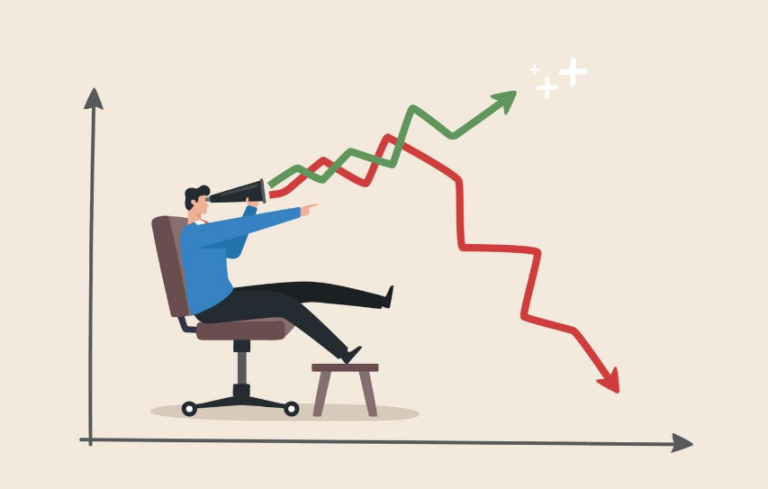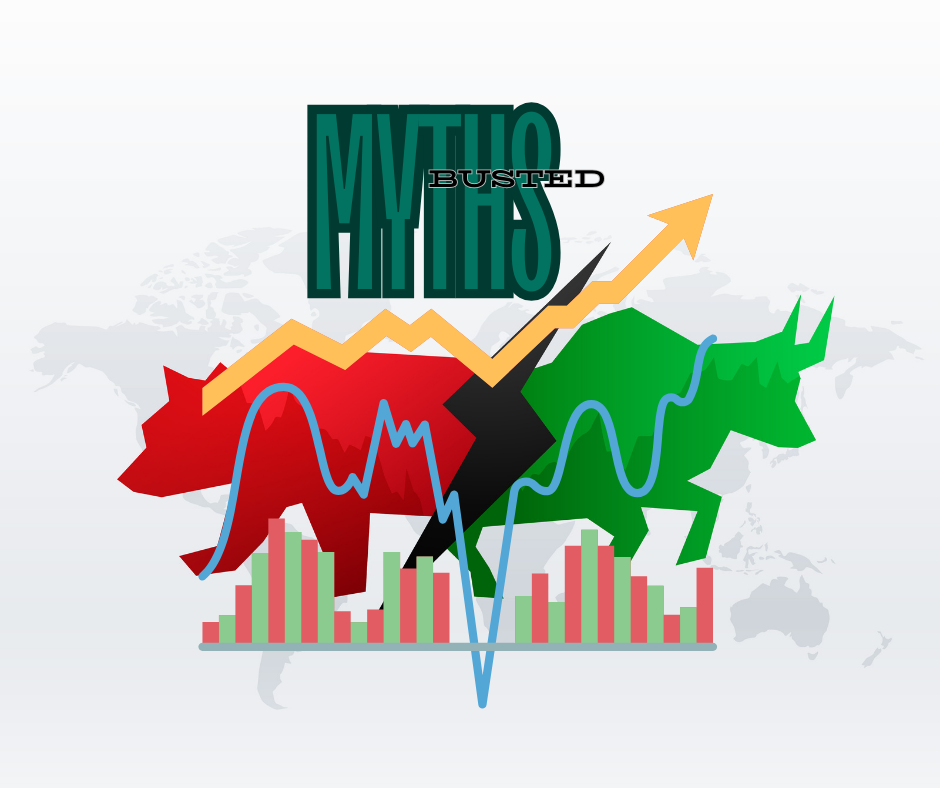Table of Contents
Introduction
The stock market is one of the most powerful wealth-creation tools available, yet they are often misunderstood. Misconceptions and myths keep many of those with a prospecting eye from investing, concerned about risks that aren‘t as threatening as they sound. So let‘s go through some of the most common stock market myths and clear them up for you so you may approach this investment with some clarity and confidence.
1. Myth: Investing in Stocks is Like Gambling

Busted: One of the most famous stock market myths is stock market does not gamble; it analyses, researches, and plans. A good investor will see data, financial reports, and trends that will make an informed decision, not a game of chance.
2. Myth: You Need a Lot of Money to Start Investing

Busted: Most believe it costs thousands of dollars to get started, which is definitely one of the stock market myths but the reality is that there’s fractional share availability in the market today and you can begin investing on fee-free platforms with $1. Small investments over time can be truly compounded.
3. Myth: The Stock Market is Only for the Rich

Busted: This is one of the stock market myths which forgets, that investing in stock is one of the most liquid ways of getting wealthy over time. Many investment products, ranging from single stocks to ETFs, make investing possible for anyone, regardless of income level.
4. Myth: You Have to Time the Market to Make Money

Busted: Market timing is a very risky strategy and very hard to execute well. Instead, a “time in the market” approach—where you invest and hold for the long term—has been proven to be more effective in generating returns.
5. Myth: Stocks are Too Risky for Retirement Savings

Busted: Stocks are fraught with risk, while growth is substantially better than inflation. Hence, they are good investments for retirement planning in the long term. When appropriately diversified, stocks become an integral part of any retirement portfolio.
6. Myth: Past Performance Predicts Future Results

Busted: One of the famous stock market myths is that, historic data does allow some insight, but past performance does not quite guarantee future performance. The stock market has a lot of factors that can impact it, such as economic changes, political moves, and company performances. Most of these cannot be pre-posturized.
7. Myth: It’s Best to Invest in Popular or “Hot” Stocks

Busted: It can be a very expensive proposition to jump on the most popular stocks or trends of the day. Typically, they are overpriced. Instead, choose a company with strong fundamentals that will continue to be good for steady growth. Their popularity is irrelevant at the moment.
8. Myth: Stock Market Investing Requires a Lot of Time and Knowledge

Busted: Though there are overt advantages to knowledge, no person needs complex financial knowledge to invest effortlessly. Most investors invest through an index fund or ETF as there is minimal supervision and mirror market performance.
9. Myth: Once You Invest, You Can Just “Set it and Forget it”

Busted: Though long-term investment is the correct play, just as the economy changes, so must a portfolio be reviewed in order to make appropriate changes based on changing financial needs and situations in life. Setting completely and forgetting is not prudent enough for investments.
10. Myth: The Stock Market is All About Quick Profits

Busted: This stock market myth is often seen as a quick way to make money, but the most successful investors understand the value of patience and long-term growth. Consistency, discipline, and a long-term outlook generally yield better results than chasing fast profits.
Final Thoughts
Knowing these stock market myths can help you empower yourself to make better decisions over investments. It is a tool that‘s supposed to be rewarded with patience, strategy, and an impressionable commitment to growth.
FAQs
Is it better to invest in individual stocks or index funds?
Answer: Both have their advantages. Individual stocks offer higher potential gains but come with higher risk, while index funds provide broad market exposure and are typically more stable. For beginners, index funds or ETFs are often recommended for simplicity and diversification.
Can I lose all my money in the stock market?
Answer: Losing all your money is highly unlikely if you diversify your investments. While individual stocks can become worthless if a company fails, a diversified portfolio spreads risk across various sectors and assets, reducing the chances of a complete loss.
Will investing in popular stocks guarantee profits?
Answer: No, investing in popular stocks does not guarantee profits. Popular stocks are often overvalued due to high demand, which can limit future growth. It’s essential to research each stock’s fundamentals before investing rather than just following trends.

